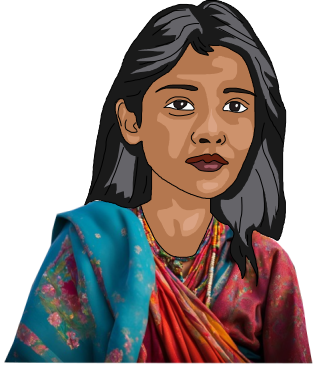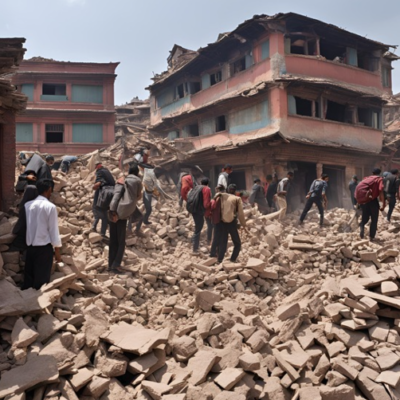P2W9: Emergency Preparedness
backDear Diary,
 |
- | Today was the scariest day of my life. Everything started like a normal school day, but it ended with chaos, destruction, and lessons I’ll never forget.
I was in my science class when it started. At first, it felt like a distant rumble, but then the ground shook violently. The walls cracked, the ceiling tiles fell, and everyone screamed. I froze for a second, but then I remembered what my father always says: “In an earthquake, stay calm and act quickly.” |
I shouted to my classmates, “Get under the desks!” We all crouched down, covering our heads with our hands. The shaking felt like it would never end. When it finally stopped, the room was filled with dust and broken furniture.
When the shaking stopped, I looked around. Some of my classmates were crying, and others were frozen in shock. Our teacher was hurt, with a cut on her forehead, but she stayed strong and told us we needed to get outside.
The doorway was blocked with debris, so we worked together to clear it. I grabbed a chair leg to use as leverage and told everyone to help, but carefully. Once we got outside, we saw the full scale of the disaster. Our school was partially collapsed, and many people were injured.
Outside, it was chaos. People were running, shouting, and looking for loved ones. I noticed a little boy sitting alone, crying, with blood on his leg. I grabbed my scarf, tied it around his leg to stop the bleeding, and told him, “It’s okay, you’re safe now.” I stayed with him until a teacher came to take him to the first aid station.
I then moved to help a woman who was trapped under a fallen beam. I couldn’t move it myself, but I flagged down some older boys and asked them to help. Together, we got her free.
The ground was still trembling occasionally, and I knew aftershocks could be dangerous. I told my friends to stay in the open field and away from buildings or trees that might fall.
Our village doesn’t have quick access to emergency services, so I found the school’s megaphone and started calling out instructions:
- “If you’re hurt, go to the first aid area near the playground!”
- “If you’re safe, help clear debris carefully or look for water and supplies!”
I also helped gather water bottles and food from the school’s canteen to share with the injured.
 |
- | Lessons for Survival By the end of the day, rescue workers arrived, but the village was still in shock. Here’s what I learned:
|
I’m still shaken, but I’m proud that I was able to help. Today reminded me why I want to make a difference. Disasters are terrifying, but staying calm, acting fast, and working together can save lives.
Goodnight, Diary.
Tara
- What type of disaster is most likely to happen in your area (e.g., earthquakes, floods, fires)? How can you prepare for it?
- Does your family have an emergency plan? If not, what steps could you take to create one?
- Do you know where the safest places are in your home or school during an earthquake, flood or fire?
- What items would you include in a disaster kit to help you and your family survive for a few days?
- Have you ever experienced an earthquake, flood, or similar event? How did you react, and what did you learn from the experience?
- Why is it important to stay calm during a disaster, even when others are panicking?
- If someone near you was injured during a disaster, how would you decide whether you could safely help them?
- What skills or knowledge do you think are most important to have in an emergency?
- How would you check if it’s safe to return to a building after an earthquake or flood?
- What would you do if you were separated from your family during a disaster?
